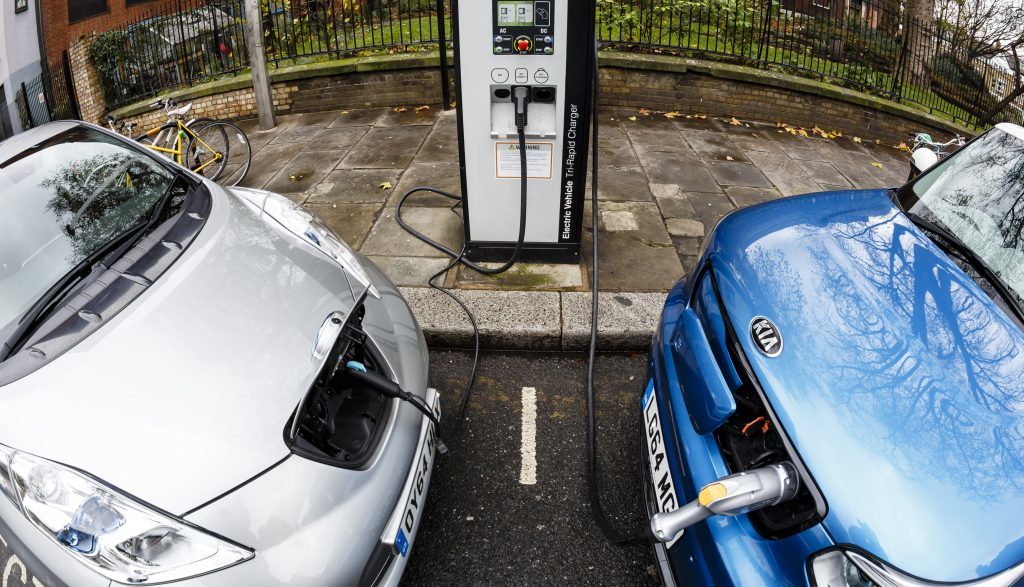
Dubai, with its 14-lane highways and car-dependent residents, will provide free parking and toll-free driving to encourage motorists to shift to electric cars as a way of cutting carbon emissions in the oil-rich United Arab Emirates.
The Dubai Electricity and Water Authority aims to have 32,000 electric cars on local roads by 2020 and 42,000 by 2030, Chief Executive Officer Saeed Al Tayer said Sunday at a news conference in Dubai. DEWA installed 100 charging stations across the city by 2015 and aims to add another 100 by the end of next year, he said.
“As an incentive, DEWA’s registered users will be able to have their electric vehicles charged by DEWA’s Green Charger electric vehicle charging stations, completely free until the end of 2019,” Al Tayer said. Together with the Road and Transportation Authority, the utility is also offering free parking spaces and exemptions from tolls and vehicle registration fees for electric-car owners.
Middle Eastern crude-producing countries are shifting toward renewable sources of energy to help reduce domestic oil use and preserve more petroleum for exports. Dubai, the second-biggest sheikhdom in the United Arab Emirates — which holds about 6 percent of the world’s crude reserves — has started building a 1.2 billion dirham ($327 million) solar plant, while neighboring Saudi Arabia is planning for its first utility-scale wind project. Battery-car specialist Tesla Inc. opened its first showroom in Dubai in July, as the fledgling market for electric vehicles takes shape worldwide.
Recommended for you
